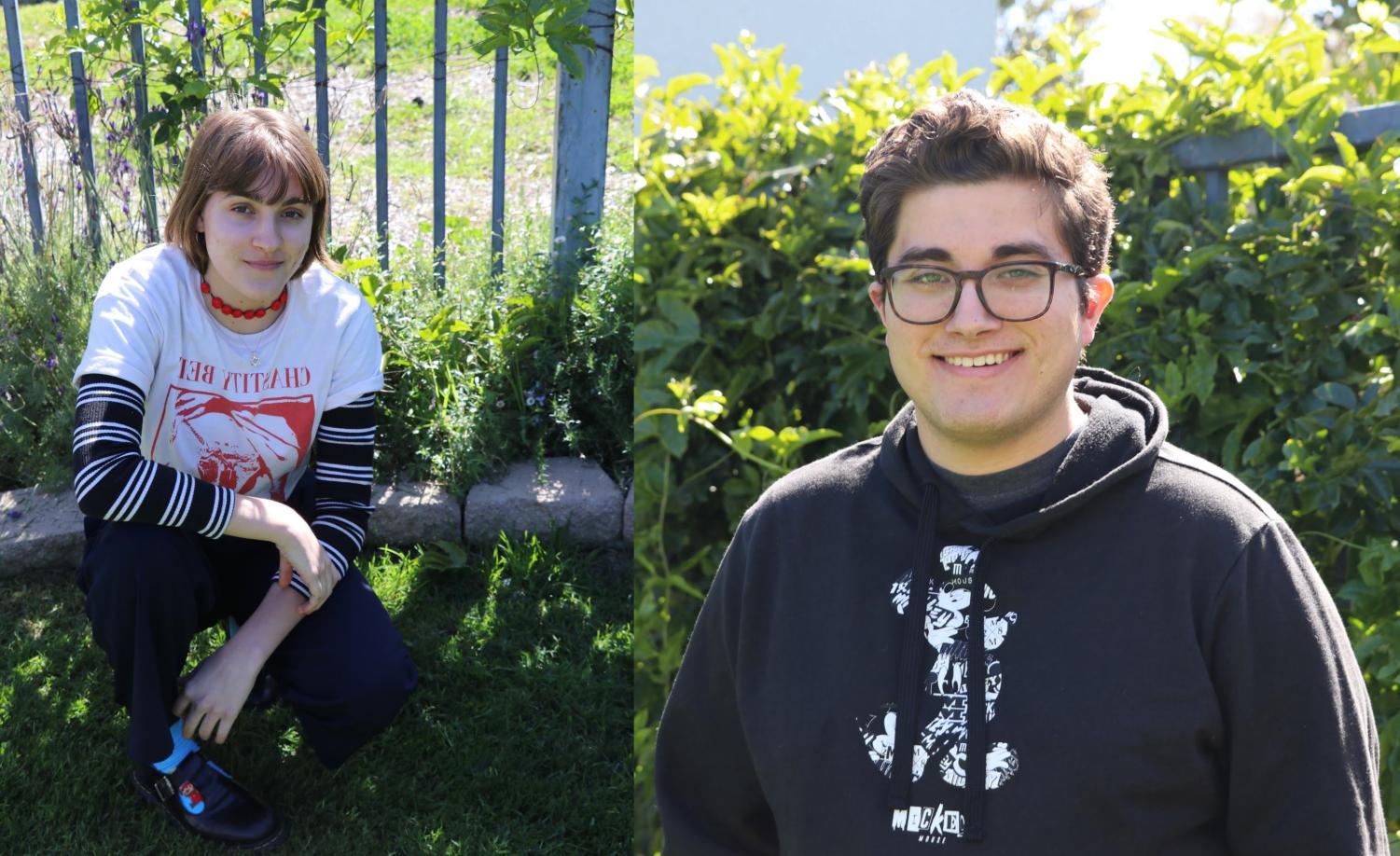Johnny Barrera ’19, Abbey Bufford ’19 explore poetry beyond English class
Foothill students Barrera and Bufford challenge the idea that poetry is only for English class with their modern and deeply imaginative art.
March 19, 2019
When faced with hardship, many turn to art for answers. From song and dance to painting and drawing, artistry is a common coping mechanism in times of misfortune. For Foothill students Abbey Bufford ‘19 and Johnny Barrera ‘19, the art they turn to is poetry: a word that, when brought up in English class, makes students think of Shakespearean sonnets and complex literary devices. Bufford and Barrera are challenging the idea that poetry is only for English class with their modern and deeply imaginative art.
Bufford has been writing poetry since they were young but started “really writing” the summer before their sophomore year—2016. This summer was spent in and out of doctors’ offices, trying to get a handle on what was going on with their health. When trying to explain what they felt to doctors and their parents, they found that “the only way to do that was just to come up with a bunch of weird metaphors—I just started writing lists, and it turned into poetry.”
Poetry is a way to process negative emotion, which Bufford would typically keep inside if not for writing. “It’s helped me understand myself a lot better,” they said.
They have shared some poetry on their private twitter and at tournaments for Foothill’s Speech and Debate team, but they said one of their goals is to share more poetry in the future.
The magic of poetry, Bufford said, is that “there’s no right way to do it.” Any collection of words that means something to someone is poetry.
To “just try something out and see” is their advice to anyone who wants to try poetry but doesn’t know where to start.
Barrera had an entirely different introduction to poetry. In English teacher Richard Geib’s class, freshmen do a unit on poetry. “I just got hooked,” he said. He explained that poetry is a way for him to “say things that I couldn’t say otherwise.”
At the beginning of Barrera’s writing experience, he described himself as a hopeless romantic. “They were all just crush-y poems.”
His poetry developed into a form of stress relief, and are now something he uses to “give people hope.”
“It’s hard to show people empathy,” he said, and poetry is his way of doing that for people who are going through hard times. His hope is that “it sends the message that I care.”
Poetry is subjective, and you get out of it what you put into it; “If you want to think about it as just a flowery poem, you can see it that way and it’s still beautiful, but if you look deep into it and then try to relate it to yourself,” Barrera said.
According to him, that’s when it becomes something more than just a poem you read in English class.
In middle school, Barrera thought poetry “wasn’t art,” and would fervently argue his point. When he looked deeper into what poetry is and what it means, he discovered that poetry is “almost one of the most personal” forms of art there is.
Barrera’s poetry is more intimate—meant to be saved for himself or read to one person. He doesn’t want or feel the need to openly share his poetry.
BUFFORD: altar/bones
altar/bones
I built an altar of my body to a god that never speaks.
I prayed last night, for the first time in months–
I sent my plea out to the universe
and it bounced back, address unknown.
there is nothing waiting to receive my requests.
the universe is a mere decoration of a suggestion box.
I lowered countless words into the abyss
but my vocal cords always fell short of reaching
the bottom.
I cried out to the stars and i thought their winking back
meant an acknowledgement–
the stars i see are constantly rotating but
when i needed their guidance,
they were perfectly still.
I built a shrine to the shards i collected of myself,
an attempt at self-necromancy that was
doomed from the beginning
but still i chanted and screamed and waited and waited.
and still i wait.
I built an altar of bones, carcasses and cartilage–
every breath a praise to my own unbodied deity;
every step an elegy.
when i die i will be welcomed only by
rot and decay.
perhaps my god is just a pile of bones.
BARRERA: Could it be true? / Questions
Could It Be True?
It is something you should never let fly away
This is something we would risk our lives for
No matter how important it can lead you astray
For this could be the person you love and adore
It could evolve into something true
To be someone you more than know
And if you don’t I will be blue
And if you will not I shall go
You can’t believe or see the fact
I could be more and not just a friend
Could your kindness be real or all an act
Could I not find out till the very end
I know that this love is very new
But so is the tale of me and you
Questions
Asking in an empty space
A void of lies with no right
Knowing not what I’m to face
I ask for hope, the sacred light
And when these crooked words are gone
I’ll leave as well, forever shamed
And when the hopeful light is gone
I will leave in deepened pain
Time will heal, but time will pass
A growing gap of trust was broken
For when time heals with pain so crass
Questions remain, left unspoken

